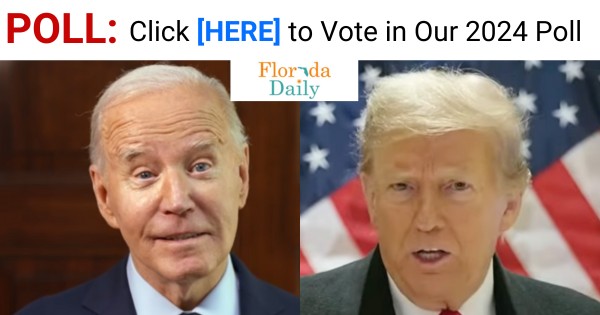By David B. McGarry
Last fall, Gov. Ron DeSantis thrashed fellow presidential contender Nikki Haley’s proposal to disallow Americans from using social media anonymously — and for good reason. “Haley’s proposal to ban anonymous speech online…is dangerous and unconstitutional,” DeSantis posted on X (formerly Twitter). The governor reminded Haley that the First Amendment unequivocally protects Americans’ right to speak anonymously, noting that America’s free-speech tradition includes the then-unidentified “Publius,” the pseudonym under which Alexander Hamilton, James Madison, and John Jay penned the Federalist Papers.
As the Florida Legislature considers the recently proposed H.B. 1, Floridians should heed DeSantis’s warnings. This bill would require social media platforms to verify users’ age and forbid minors younger than 16 from using social media. This proposal would violate the First Amendment rights of both children and adults. Despite being undoubtedly well-intentioned, neither of these major provisions would survive a legal challenge.
To use social media (i.e., to speak online), users of all ages must submit to H.B. 1’s age verification mandate. Floridians understand the profound threat to constitutional rights that purportedly benevolent regimes pose. They should view such proposals as applied to the digital world with no less skepticism.
Required age verification forces users to provide sensitive personal information to online platforms or (as H.B. 1 provides for) to third-party verification services. This allows them to amass treasure troves of data, ripe for hacking. Besides such security risks, age verification establishes a data trail that greatly helps anybody who wishes to identify would-be-anonymous users, even with optimal data governance. Despite advocates’ increasingly feeble objections, the fact remains that mandated online verification regimes are, to one degree or another, de facto bans on online anonymity.
In McIntyre v. Ohio Elections Commission (1995), the Supreme Court affirmed the First Amendment’s protections of anonymous speech. “Under our Constitution, anonymous pamphleteering is not a pernicious, fraudulent practice, but an honorable tradition of advocacy and of dissent,” ruled Justice John Paul Stevens, writing for the majority. “Anonymity is a shield from the tyranny of the majority.”
Neither would H.B. 1’s blanket proposal to ban children 16-years-old or younger from social media withstand First Amendment scrutiny. As a constitutional matter, minors receive more limited rights than adults, yet they nonetheless enjoy substantial protections. The Supreme Court ruled as much in Brown v. Entertainment Merchants Association (2011). In that case, Justice Antonin Scalia wrote, “Only in relatively narrow and well-defined circumstances may government bar public dissemination of protected materials to [minors].” Scalia acknowledged readily that authorities may enact child-safety laws. However, he continued, “That does not include a free-floating power to restrict the ideas to which children may be exposed.”
Barring all under-16s categorically from social media — irrespective of individuals’ maturity, interests, social environment, and preexisting psychological state — bars them also from accessing benign or beneficial online content. And that content is (as a legal matter) constitutionally protected speech. Moreover, unlike liquor stores, nightclubs, smut shops, and other “adult” establishments that exclude minors, social media provides many children (particularly older children, properly supervised by their parents) access to valuable educational and social opportunities.
Through H.B. 1, government would preempt parents’ broad right — and duty — to determine what content their child views or does not view. Children’s varying personality traits and circumstances will suit them to various types of media, both online and offline. Parents, not regulators, understand their children best. Parents, not the state, should retain the primary responsibility for their children’s online upbringing. As Scalia wrote of the California law the Court rejected in Brown, H.B. 1’s “effect may indeed be in support of what some parents of the restricted children actually want, its entire effect is only in support of what the State thinks parents ought to want.”
Social media platforms already have online tools that allow parents to control, limit, and monitor their children’s social media use. Public officials (through public statements) and schools (through online literacy and -safety courses) should promote such tools. Too many parents have neglected their responsibility to protect their children as carefully in the digital world as they would in the physical one. Officials at the bully pulpit could do much good to ameliorate this. However, prudence dictates that not every parental failure requires a regulatory intervention. Nearly one in five American children is obese, yet most Americans would recoil at the thought of state-prescribed family meal plans.
H.B. 1 would be bad for parents and children. It would blatantly violate the Constitution’s clear boundaries. Attempting to reverse America’s traditional respect for anonymous speakers and parental rights would neither escape a judicial injunction nor effect the noble goal of safeguarding children. The Florida legislature should take note of DeSantis’s legally and prudentially sound arguments — and give the whole idea up.
David B. McGarry is a policy analyst at the Taxpayers Protection Alliance.









